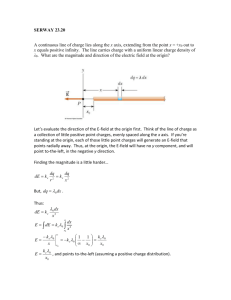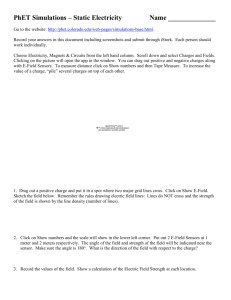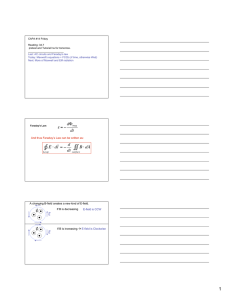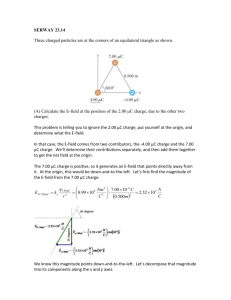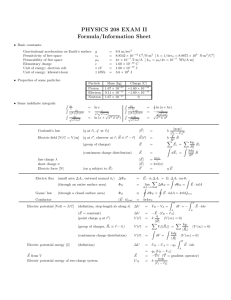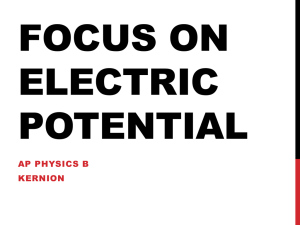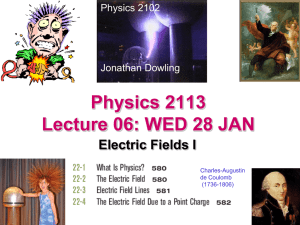Document 10381448
advertisement
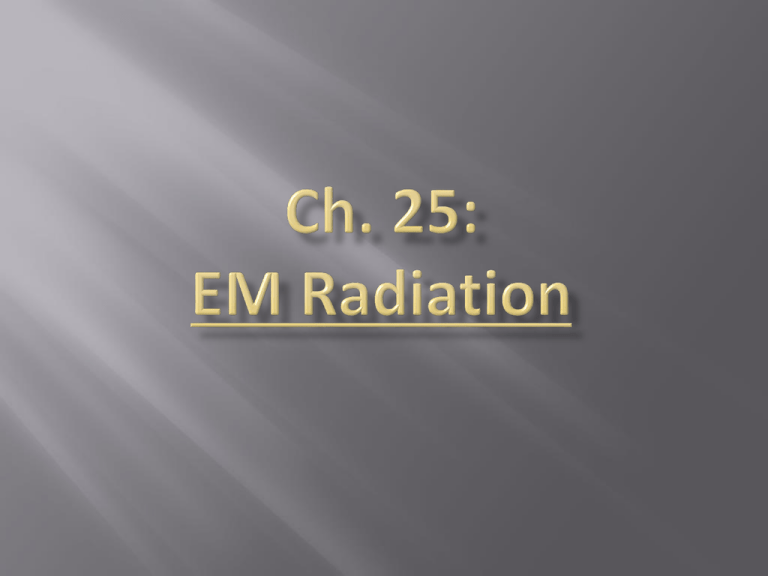
E-field lines originate on positive charges and terminate on negative charges (Gauss’ Law) B-field lines always form closed loops. Changing B-field induces an emf, an E-field (Faraday’s Law). B-fields are created by moving charges, currents (Ampere’s Law). Electric and Magnetic fields are interrelated. Varying E-field with time yields B-field. Solution of Maxwell’s Equations in vacuum yield propagating, fluctuating, electric and magnetic fields Each varying field induces the other. Experimentally validated Maxwell’s EM theories. First to generate and detect EM waves in the laboratory. E-field wave: High-frequency reversal of the polarity of an electric dipole creates a varying electric field (time and space). E (x,t) B-field Wave: Changing polarity of a dipole creates a current. Changing current induces a varying magnetic field. B (x,t) E-wave Reception: Antenna E-wave supplies changing E-field at wire Induces AC current B-wave Reception: Loop Antenna B-wave sets a changing magnetic field through the wire loop varying magnetic flux induces a varying EMF Induces AC current c = λf All bodies emit thermal emission due to movement* of charges in matter. The emission spectrum is temperature dependent. Stars, fire, incandescent light bulbs, lava, hot coals, etc. peak in the visible part of the spectrum. Humans’ thermal emission peaks in the infrared, ~12 μm. EM waves from radio antenna are plane (linearly) polarized. Created by charges oscillating in a line. Thermal emission sources are non-polarized Created by random thermal motion. Non-polarized light can be polarized by use of Polaroid sheets. Consist of plastic with needle-like crystals oriented lengthwise Allow only one orientation of wave to pass Sheet parallel to polarization passes light unimpeded. Sheet perpendicular to polarization reduces flux to 0. Two perpendicular Polaroid sheets reduces EM flux to 0. Polarized sunglasses 3D-movies! You observe two otherwise identical, thin tungsten filaments. Filament 1 glows red. Filament 2 glows yellow/white. What can you say about the respective currents through the filaments? A.) I1 = I2 B.) I1 < I2 C.) I1 > I2 D.) There is no current. E.) Not a thing.
